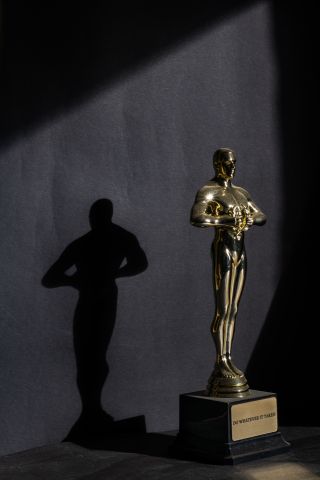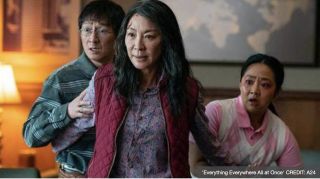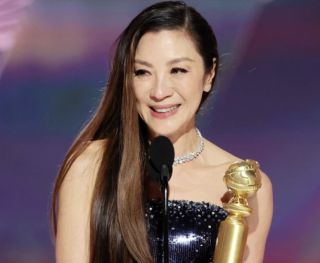Why Michelle Yeoh's Oscar-Nominated Role Matters

Source: Mirko Fabian/Unsplash
In spite of living in this company town for the movie industry for a quarter of a century, I’ve never watched an entire telecast of the Academy Awards. I mean, who has five-plus hours to devote to watching a lot of beautiful, privileged, and, still, overwhelmingly White people congratulate themselves and others just like them?
This year, however, will be different. On Sunday, the Oscars makes history by having four Asian or Asian American actors up for awards in marquee categories: Michelle Yeoh for Best Actress, Ke Huy Quan for Best Supporting Actor, and Stephanie Hsu and Hong Chau for Best Supporting Actress. While the sheer number of nominations of Asian performers is astonishing, it is Michelle Yeoh’s visibility and role in Everything Everywhere All at Once that is truly game-changing.
Distorted Representations of Asian Women in Film and Its EffectsIt’s been less than two years since six women of Asian descent were gunned down in Atlanta, violence that traces back to the fetishization of Asian women as docile vessels for men’s bodily needs. Hollywood has done its part in perpetuating demeaning stereotypes, either portraying Asian women as prostitutes, madams, dragon ladies, or not at all, rendering diverse and realistic representations largely absent on the big screen.
For Asian American women and girls, not seeing characters that reflect who they really are limits how they see themselves and sends harmful messages that erode self-concept. It also distorts others' views about them. Since the beginning of the COVID pandemic, hate crimes against Asian Americans have risen by about 150 percent. Asian American women, going about their daily lives, have been cursed at, spat on, pushed into subway trains, attacked with hammers and axes, and shot to death, paralleling a rise in ugly slurs openly expressed on the biggest political stage.
This is why, on the biggest Hollywood stage, the recognition of this movie, and especially its luminous star, is a huge moment for Asian American women everywhere.

Source: A24
In the movie, Michelle Yeoh plays Evelyn Wang, a harried wife, mother, and laundromat owner who also takes care of her elderly, overly critical father. In this universe, she is beyond stressed and utterly unglamorous, dressed in frumpy, mismatched clothes and wearing no make-up, and Yeoh, the actress, allows herself to look this way for much of the movie. Just when it looks like it’s going to be a "Marvel kung-fu multiverse meets zombie apocalypse" type of thing, the film’s exuberant heart reveals itself, centering on the paths not taken in Evelyn’s life, the what-ifs and what-might-have-beens that every mother/wife/adult daughter might grapple with at midlife, maybe wishing for multiverses to open up for them to live out. In one of these multiverses is a glamorous, movie-star Evelyn, stepping out of a limousine, with a glimpse of—wink wink—a Crazy Rich Asians poster in the background (a film in which Yeoh starred). Another is a strong, powerful Evelyn kicking zombie butt, another parallel with the real-life Yeoh, an accomplished martial artist. It is as if the movie is saying, on cinematic and IRL levels, that all of this is us, or could be. And not a prostitute or dragon lady to be seen anywhere.
The movie’s trippy, kinetic fun is tempered by an exploration of cultural and intergenerational family issues that Asian American women know all too well. Evelyn is raising a highly acculturated daughter and has to explain her daughter—and herself—to a very traditional, disapproving parent. Being caught between these two worlds will make your head spin in real life, and its dizzying representation in the movie as moving between different universes evokes the same feeling; in other words, it makes us feel seen.

Source: NBC
Michelle Yeoh’s life is obviously very different from her character’s, yet she has talked extensively about how hard it is to break through Hollywood’s stereotypes. She is no ingenue and makes a point of stating her age—60—in interviews. An Asian woman who’s traveled a few paths and left some untaken, like Evelyn, like many of us, who has arrived at the one she has chosen to embrace. How meaningful, finally, that Hollywood has chosen to embrace her—us—at this moment too.
References
Mok, T. A. (1998). Getting the message: Media images and stereotypes and their effect on Asian Americans. Cultural Diversity and Mental Health, 4(3), 185–202. https://doi.org/10.1037/1099-9809.4.3.185
Fryberg, S. A., & Townsend, S. S. M. (2008). The psychology of invisibility. In G. Adams, M. Biernat, N. R. Branscombe, C. S. Crandall, & L. S. Wrightsman (Eds.), Commemorating Brown: The social psychology of racism and discrimination (pp. 173–193). American Psychological Association. https://doi.org/10.1037/11681-010
Hsing, C., & Xing, J. (1998). Asian America through the lens: History, representations, and identity (Vol. 3). Rowman Altamira.


































